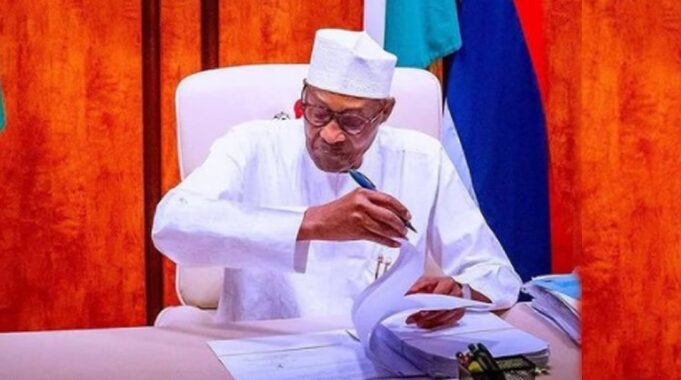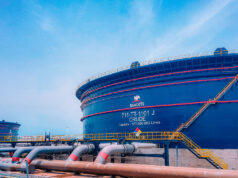Nigeria lost an estimated $50 billion worth of investments in 10 years, created by the uncertainty of non-passage of the Petroleum Industry Bill (PIB).
The lack of progress and stagnation in the petroleum industry also contributed to the losses.
President Muhammadu Buhari, on Wednesday in Abuja, at a ceremony on passage of the PIA, said the stagnation affected growth of the economy, citing lack of political will on the part of past administrations to actualize the needed transformation.
Buhari said assent of the Petroleum Industry Bill on August 16, 2021, marks the end of decades of uncertainty and under-investment in the petroleum industry.
“We are all aware that past administrations have identified the need to further align the industry for global competitiveness, but there was lack of political will to actualize this needed transformation.
“This lack of progress has stagnated the growth of the industry and the prosperity of our economy. In the past 10 years, Nigeria has lost an estimated $50 billion worth of investments due to uncertainty created by the non-passage of the PIB.
“This administration believes that the timely passage of the Petroleum Industry Bill will help our country attract investments across the oil and gas value chain.
“In view of the value our nation and investors will derive from a stable fiscal framework for the oil and gas industry, our administration has found it necessary to work with the two Chambers of the National Assembly to ensure the passage of the PIB,” he said.
The President noted that signing of the bill was part of the administration’s commitment to building a competitive and resilient petroleum industry that will attract investment, improve our revenue base, create jobs and support our economic diversification agenda.
The President said as a “nation that depends on oil resources for the development of other sectors, Nigeria runs a petroleum industry that is governed largely by laws enacted over 50 years ago such as the principal legislation; the Petroleum Act of 1969 and other obsolete legislations.”
He said the Presidential assent of the bill to “Petroleum Industry Act 2021” marked the beginning of the journey towards a competitive and resilient petroleum industry that will attract investments to support the nation’s Economic Recovery and Growth Plan.
“The “Petroleum Industry Act 2021” creates a regulatory environment that would ensure efficiency and accountability across the oil and gas value chain and reposition NNPC to a commercially-driven National Petroleum Company that is accountable to the Federation.
“The Act also provides for a direct benefit framework that will enable sustainable development of Host Communities. I appeal to the host communities to look carefully at the contents of the Bill which in the implementation will bring real and lasting benefits to them.
“Furthermore, the Act provides for deliberate end to gas flaring which would facilitate the attainment of Nigeria’s Nationally Determined Contributions of the Paris Agreement through a funding mechanism to support gas flare out project in host communities,” he added.
Buhari, who is the Minister of Petroleum Resources, said the administration believes that the timely passage of the Petroleum Industry Bill will help our country attract investments across the oil and gas value chain.
While directing immediate implementation of the framework for the Petroleum Industry Act (PIA), he urged all relevant stakeholders to comply and reposition for full activation within 12 months.
The President said the Minister of State for Petroleum Resources, Timipre Sylva, will head the implementation team, urging all Ministries, Departments and Agencies (MDA) to adjust to the transition, designed to reposition the economy.
Buhari commended the leadership of the 9th Assembly for their continued pursuit of national aspiration and demonstration of mutual harmony with the Executive in the pursuit of patriotic outcome in passage of PIB.
The ceremony was attended by the Senate President, Dr. Ahmad Lawan; Deputy Senate President, Ovie Omo-Agege; Deputy Speaker, Hon. Ahmed Idris Wase and other lawmakers, members of the Federal Executive Council (FEC) and Group Managing Director of NNPC, Mele Kyari.









